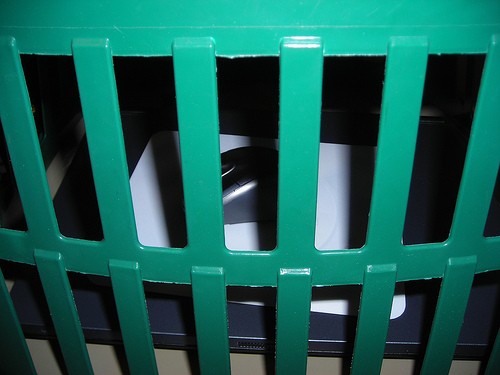ars technica: France convicts first person under anti-piracy law
A three-strikes anti-piracy law has claimed its first victim in France. In a controversial decision, the charges were filed against the owner of an unsecured DSL account on which the illegal downloads were made, instead of the individual who admitted to accessing the content.As copyright laws continue to plague citizens with harsh penalties and fines worldwide, the Trans-Pacific Partnership trade agreement looks to further restrict our access. Stand up for your Internet rights at StopTheTrap.net.
A three-strikes anti-piracy law has claimed its first victim in France. In a controversial decision, the charges were filed against the owner of an unsecured DSL account on which the illegal downloads were made, instead of the individual who admitted to accessing the content.
A 40-year-old Frenchman living in rural eastern France has become the first person ordered to pay a fine under France’s controversial anti-piracy three-strikes law known as Hadopi.
On Thursday, a judge ruled that Alain Prevost must pay €150 ($194) for failing to secure his Internet (presumably WiFi) connection and for ignoring the three warnings sent by the Hadopi agency. He has become the first person to be convicted under Hadopi; his is the first of 14 cases brought against French Internet users who reach the third strike.
Since the election of François Hollande as president in June 2012, Hadopi has been under fire (even if the initiative began under his predecessor). In August, the new French minister of culture indicated that Hadopi would likely get shut down.
Jérémie Zimmerman, of the French digital rights group La Quadrature du Net condemned this verdict, in an e-mail sent to Ars.
"This is pure harassment and intimidation of this poor chap who doesn't even know what happened to him, and shows the absurdity of the whole scheme," he wrote. "Actually, Hadopi cases are completely empty of any evidence, with only IP addresses collected by private companies that no judge could ever accept as valid."
However, in a strange twist of facts, Prevost was not even guilty of downloading. Instead, it was his soon-to-be ex-wife, who was in attendance in court. She even admitted under oath that she downloaded the two Rihanna songs in question.
According to French media reports, the man, described as a local artisan, told the court he was "totally incapable of downloading anything." However, because he was the owner of the DSL account, Prevost was considered responsible under the law.
But because Prevost attempted to provide a legitimate explanation of what had happened—without a lawyer—he consequently admitted his own guilt of not having secured his WiFi network. By saying that it was his wife who had downloaded the songs, Prevost handed over the prosecution all the evidence it needed, as otherwise it would have needed to prove that he had not done so.
"In the meantime people have nothing to fear: The best remedy against Hadopi is to say, ‘I didn't do it!’" Zimmerman added. "If this guy hadn't self-incriminated, he would have never been fined."
Or, as the French tech site Numérama (Google Translate) summed it up: "We can applaud the honesty, but regret the naïveté." Read more»
--
Read more at ars technica


 Take action now!
Take action now!
 Sign up to be in the loop
Sign up to be in the loop
 Donate to support our work
Donate to support our work